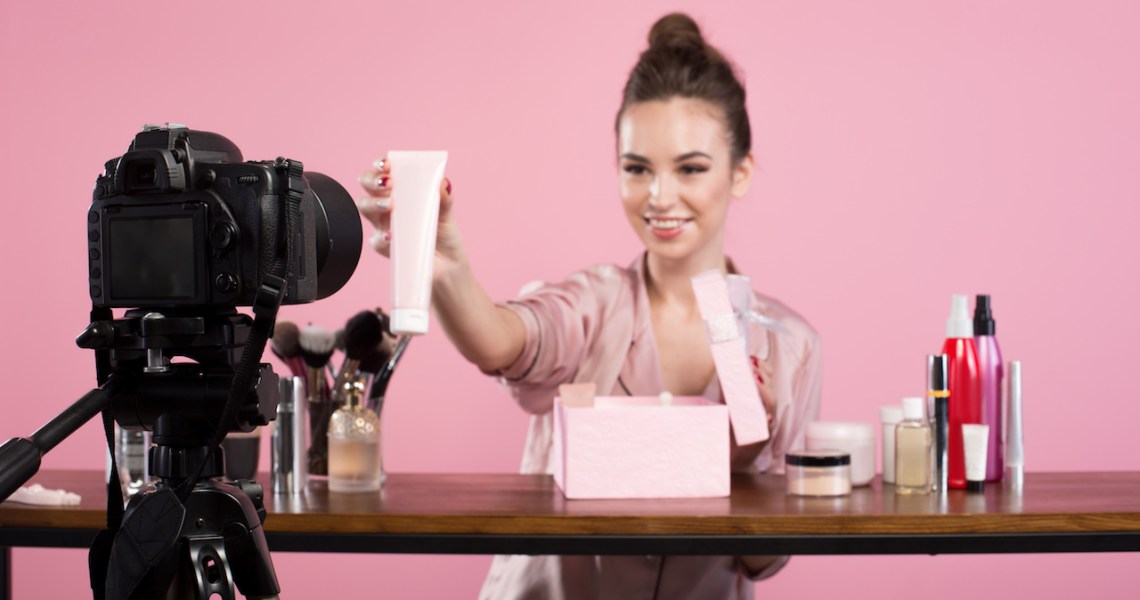In the final days of 2020, Glossy’s editorial team reflected on the standout stories of the year, including those they were proud to report, those they never thought they’d write and one that documented the start of an industry-wide reckoning.
Following Nike’s lead, a wave of beauty brands finally voiced their support for Black Lives Matter in June after the vast majority had avoided the topic for fear of seeming controversial. This moment marked the beginning of an industry-wide reckoning in beauty, as companies were forced to confront their own behavior toward both customers and employees of color. The movement continues going into 2021 as entrepreneurs, professionals and consumers call for lasting change rather than temporary lip service. –Liz Flora, sr. beauty and wellness reporter
This year, we took a fresh approach to planning our annual Glossy 50 feature, by starting with the categories versus the people. Rather than simply spotlight the insiders who drove great change in fashion and beauty, we wanted to be sure to highlight those who pushed the industry forward in the areas needing it most: They forwarded Diversity and Inclusion, initiated support groups for fellow brand leaders (Leadership), introduced new means of selling and marketing (Industry Transformation), and rocked the vote (Advocacy). In this transformative year, they pointed the industries in the right direction — positioning them not only for a better 2021, but also a brighter future. For Glossy’s reporting team, this feature was a labor of love, and in my book, it somehow sums up the overwhelming year that was. –Jill Manoff, editor-in-chief
In early February, I spoke with the president of Ked’s who had just come back from a trip to China. During our conversation, she made some ominous predictions about the coronavirus — something I had vaguely heard about but knew little of the details. I wrote the first story on Glossy about Covid-19, not knowing that it would soon come to dominate nearly every conversation about not just our industry but life in general. I’m proud that we got an early read on the situation and weren’t caught completely off-guard when it hit the U.S. in full.
I also thought our story on the beauty influencers who embraced the QAnon conspiracy theory was a great look at how our beats — the beauty and fashion business — can intersect with some important and interesting things happening outside our world. It was a well-reported story by Liz that shined a light on the ugly side of the beauty world in a compelling way. –Danny Parisi, fashion reporter
Reporting on the global skin whitening industry following the killing of George Floyd in May was a passion project of mine. What started with a feature in our weekly Beauty & Wellness Briefing spawned “Unfair,” Glossy’s and Digiday’s first narrative podcast series. With racism and colorism were brought into the mainstream consciousness, beauty companies were forced to respond to their role in spurring unrealistic and myopic beauty standards. Myself and our producer, the talented Pierre Bienaimé, spent nearly five months reporting the series, that delved into the skin-whitening industry’s origins, history and systems of regulation, and the societal and health problems presented by these skin-care products. In June, we thought maybe we would feature about 15-20 voices, and we ended up with 50-plus, including U.S. Representative Ilhan Omar and former Miss America Nina Davuluri. Speaking with Congresswoman Omar was a highlight, not only because she is trying to bring federal change to this issue, but also because she spoke of the impact these products had on her family and herself. The reality is that consumers have a lot to lose — their confidence and possibly their health — as beauty companies seek to walk a line between progressive marketing and profits. –Priya Rao, executive editor
This year has truly been transformational for the beauty industry. One story I loved working on was on what happened to skin-care brand Urban Skin Rx after its Even Tone Cleansing Bar organically went viral on TikTok in January. TikTok coverage has become a regular area of coverage for beauty, but back in March when I wrote the piece, it had not yet been fully embraced by the industry. And while we now often cover the coordinated efforts of brands using TikTok to boost awareness and drive sales, it was fun to peek behind the curtain of unexpected fame to understand the real-time impacts for an indie brand. –Emma Sandler, beauty and wellness reporter




